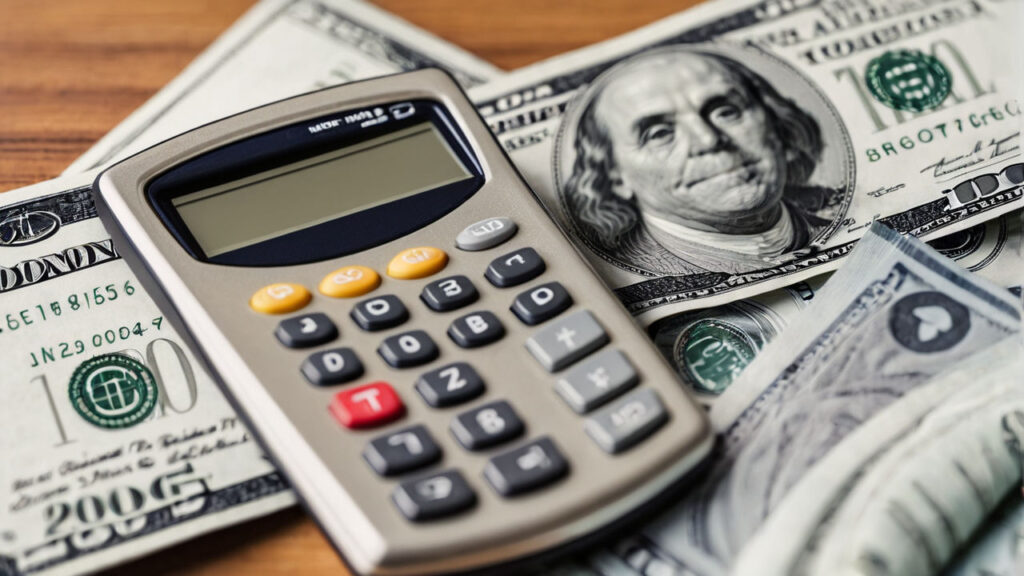A Money Market Account (MMA) represents a hybrid between a savings account and a short-term investment vehicle, designed to offer both security and higher yields. Understanding the nuances of MMAs can provide valuable insights into managing personal finances effectively.

Definition of a Money Market Account
A Money Market Account is a type of savings account that typically offers higher interest rates compared to standard savings accounts. It combines features of both savings and checking accounts, providing higher returns while maintaining relatively easy access to funds.
Key Features of Money Market Accounts
Exploring the characteristics that define MMAs reveals why they are a popular choice for those seeking a balance between security and higher returns.
Interest Rates
Interest rates on MMAs are generally higher than those of traditional savings accounts, reflecting the account’s investment in short-term, low-risk securities. Rates can vary based on economic conditions and financial institutions, and they are often tiered based on the account balance.

Account Minimums and Limits
MMAs often require a higher minimum balance than standard savings accounts. This requirement can range from a few hundred to several thousand dollars. Additionally, there are usually limits on the number of transactions, including withdrawals and transfers, to maintain the account’s higher interest rates.
Accessibility and Liquidity
While MMAs offer relatively easy access to funds, they are not as liquid as regular savings accounts. There are typically limits on the number of transactions you can make each month, and withdrawals may require prior notice or involve processing delays.
How Money Market Accounts Work
The mechanics behind MMAs involve a blend of banking and investment principles, providing a unique combination of safety and profitability.
Investment Strategies
MMAs invest in short-term, low-risk instruments such as Treasury bills, certificates of deposit (CDs), and commercial paper. These investments are designed to provide stable returns while preserving the safety of the principal amount.
FDIC Insurance
Most MMAs are insured by the Federal Deposit Insurance Corporation (FDIC), which protects deposits up to $250,000 per account holder, per insured bank. This insurance guarantees that even if the bank fails, the account holder’s funds are secure.
Comparison with Savings Accounts
Unlike traditional savings accounts, MMAs generally offer higher interest rates due to their investment strategies. However, they often come with higher minimum balance requirements and more restrictions on transactions.

Benefits of Money Market Accounts
MMAs offer several advantages, making them an attractive option for those looking to maximize returns while maintaining a degree of liquidity.
Higher Interest Rates
The primary benefit of an MMA is its ability to provide higher returns compared to standard savings accounts. This is due to the account’s investment in higher-yielding financial instruments.
Flexibility and Access
MMAs offer more flexibility than CDs while providing better returns than regular savings accounts. They typically allow for limited transactions, which provides a balance between accessibility and higher yields.
Safety and Security
With FDIC insurance covering most MMAs, account holders benefit from the security of knowing their deposits are protected, making MMAs a low-risk investment option.
Drawbacks of Money Market Accounts
Despite their benefits, MMAs have certain limitations that potential account holders should consider.
Lower Returns Compared to Investments
Although MMAs offer higher returns than savings accounts, they generally provide lower yields compared to more aggressive investments like stocks or bonds. They are best suited for conservative investors.
Fees and Penalties
MMAs may include fees, such as maintenance charges or penalties for falling below the minimum balance. These fees can erode the account’s returns if not carefully managed.
Transaction Limitations
Regulations typically restrict the number of certain types of transactions (such as withdrawals and transfers) to six per month. Exceeding these limits may result in fees or account conversion to a standard savings account.

Types of Money Market Accounts
There are various types of MMAs, each with distinct features tailored to different financial needs.
Standard Money Market Accounts
Traditional MMAs offer a balance of higher interest rates and liquidity. They usually require higher minimum balances and have transaction limits but provide relatively stable returns.
High-Yield Money Market Accounts
High-yield MMAs are designed to offer even higher interest rates than standard MMAs. They may come with higher minimum balance requirements and may be offered by online banks or credit unions.
Money Market Mutual Funds
Money Market Mutual Funds differ from traditional MMAs by investing in a wider array of short-term securities and often require a lower minimum investment. They offer potential for higher returns but do not provide FDIC insurance.
Opening a Money Market Account
Starting an MMA involves several steps, from selecting a provider to making an initial deposit.
Choosing the Right Provider
Selecting an MMA provider involves comparing interest rates, fees, account features, and customer service. Factors such as financial stability and reputation should also be considered.
Required Documentation
To open an MMA, you will typically need to provide personal identification, proof of address, and possibly your Social Security number. Some institutions may require additional financial information.
Account Setup and Initial Deposit
The setup process involves completing an application form, providing necessary documentation, and making an initial deposit. This deposit amount can vary depending on the institution and the type of MMA.
Managing Your Money Market Account
Effective management is crucial for maximizing the benefits of an MMA.
Monitoring Interest Rates
Regularly reviewing interest rates ensures that you are getting the best possible return on your investment. It may be necessary to switch accounts or providers if better rates become available.
Maintaining Minimum Balances
To avoid fees and penalties, ensure that you maintain the minimum balance required by the account. This helps preserve the account’s benefits and avoids unnecessary charges.
Planning Withdrawals and Deposits
Strategically planning your withdrawals and deposits can help you manage your funds efficiently while staying within the account’s transaction limits.
Money Market Accounts vs. Other Financial Products
Comparing MMAs with other financial products can help determine the best option for your needs.
Money Market Accounts vs. Certificates of Deposit (CDs)
CDs often offer higher fixed interest rates compared to MMAs but require locking in your money for a set term. MMAs provide more flexibility but with potentially lower rates.
Money Market Accounts vs. Brokerage Accounts
Brokerage accounts offer opportunities for higher returns through investments in stocks and bonds but come with higher risk. MMAs provide safer, lower-return options with easier access to funds.
Money Market Accounts vs. Traditional Savings Accounts
MMAs generally offer higher interest rates than traditional savings accounts but may require higher minimum balances and have more transaction limits.
How Economic Conditions Affect Money Market Accounts
Economic factors play a significant role in the performance and features of MMAs.
Interest Rate Fluctuations
Interest rates directly impact MMA returns. Rising rates generally lead to higher yields for MMAs, while falling rates can reduce returns.
Inflation and Purchasing Power
Inflation can erode the purchasing power of the returns from an MMA. Monitoring inflation trends is important to assess the real value of your earnings.
The Future of Money Market Accounts
Looking ahead, several factors may influence the evolution of MMAs.
Emerging Trends and Innovations
New technologies and financial trends, such as online banking and fintech innovations, may lead to changes in MMA offerings and features.
Predictions for MMA Performance
Future performance of MMAs will depend on economic conditions, interest rate trends, and changes in financial regulations. Keeping abreast of these factors can help in making informed decisions.
BOTTOM LINE
Money Market Accounts offer a blend of higher returns and security, making them an appealing option for conservative investors. Understanding their features, benefits, and limitations is essential for effective financial planning.
Frequently Asked Questions (FAQs)
What is a money market account and how does it work?
A Money Market Account (MMA) is a type of savings account that offers higher interest rates compared to traditional savings accounts due to its investment in low-risk, short-term securities. MMAs combine features of both savings and checking accounts, providing a blend of higher returns and liquidity. The funds in an MMA are typically invested in government securities, certificates of deposit (CDs), and other short-term instruments, which generate interest. This interest is then credited to your account, potentially offering better returns than a standard savings account.
Can a money market account go negative?
Generally, a Money Market Account (MMA) cannot go negative because it is designed to protect your principal balance through FDIC insurance (for accounts at insured institutions) and investments in low-risk securities. However, if you incur fees or fail to maintain the required minimum balance, you might see a reduction in your account balance. In rare cases, if the institution itself faces significant financial trouble, it might affect your account, though such instances are extremely uncommon.
How long should I keep money in a money market fund?
The duration for keeping money in a Money Market Fund (MMF) depends on your financial goals and market conditions. Generally, MMFs are suitable for short-term investment needs due to their liquidity and safety. If you are saving for a short-term goal or need quick access to your funds, keeping your money in an MMF for a few months to a couple of years is advisable. For longer-term investments, other financial instruments might offer better returns.
Source: Morningstar
Which money market fund is best?
The best Money Market Fund (MMF) depends on your specific needs and preferences, such as yield, fees, and risk tolerance. Look for MMFs with competitive yields, low expense ratios, and strong credit quality of the underlying investments. Research various funds, consider their historical performance, and review ratings from independent financial analysts to find the best option for you.
Source: Forbes
Is it good to keep money in a money market account?
Keeping money in a Money Market Account (MMA) can be a good choice if you seek a balance between safety and higher returns. MMAs generally offer better interest rates than traditional savings accounts while maintaining relatively easy access to your funds. They are ideal for emergency savings, short-term goals, or when you want to keep your money safe yet earning more than it would in a basic savings account.
Source: Bankrate
Can you transfer money from a money market account?
Yes, you can transfer money from a Money Market Account (MMA). However, there are usually limitations on the number of transfers or withdrawals you can make each month. These limits are set by federal regulations and the policies of your financial institution. It’s important to be aware of these restrictions to avoid fees or other penalties.
Source: Investopedia
Can you withdraw money from a money market account without penalty?
You can withdraw money from a Money Market Account (MMA), but there may be penalties or fees if you exceed the allowed number of withdrawals or if you fall below the minimum balance requirement. Each financial institution sets its own rules regarding withdrawals, so it is crucial to review your account’s terms and conditions.
Source: NerdWallet
What is the minimum balance for a money market account?
The minimum balance for a Money Market Account (MMA) varies by financial institution. It can range from a few hundred dollars to several thousand dollars. Maintaining the required minimum balance is essential to avoid fees and ensure you continue to earn the higher interest rates typically associated with MMAs.
Source: Bankrate
What are the problems with money market accounts?
Problems with Money Market Accounts (MMAs) include low interest rates compared to other investment options, fees for falling below the minimum balance, and limits on the number of transactions per month. Additionally, while MMAs are relatively safe, they may not offer the same high returns as more aggressive investment strategies.
Source: Investopedia
Are money market funds safe in a crash?
Money Market Funds (MMFs) are generally considered safe due to their investment in short-term, high-quality securities. However, during severe market crashes, MMFs can face challenges, such as reduced liquidity or the risk of defaults on underlying securities. Historically, MMFs have been stable, but it’s important to stay informed about the fund’s investments and the financial health of the fund manager.
Source: Morningstar
Can your money get stuck in a money market account?
Your money typically cannot get “stuck” in a Money Market Account (MMA) because you can usually withdraw or transfer funds within the account’s limits. However, if the account faces severe liquidity issues or if there are restrictions on withdrawals, it could delay access to your funds. Reviewing the account’s terms and conditions can help you understand any potential limitations.
Source: NerdWallet
Have money markets ever lost money?
While Money Market Accounts (MMAs) are designed to preserve capital, they are not entirely risk-free. There have been rare instances where Money Market Funds (MMFs) have faced losses due to defaults on underlying securities or extreme market conditions. However, such occurrences are infrequent, and MMFs are generally considered low-risk.
Source: Forbes
Are money market accounts safe during recession?
Money Market Accounts (MMAs) are relatively safe during a recession because they are typically invested in low-risk, short-term securities. Additionally, they are often insured by the FDIC up to the insurance limit. However, during a severe economic downturn, returns may decrease, and there might be concerns about liquidity or the financial stability of the institution holding the account.
Source: Bankrate
Can you spend money out of a money market account?
While you can access funds from a Money Market Account (MMA), spending money directly from the account is usually limited. MMAs often come with restrictions on the number of transactions or require specific processes for accessing funds. To spend money, you might need to transfer it to a checking account or use other methods provided by your financial institution.
Source: Investopedia
What are two disadvantages of a money market fund?
Two disadvantages of Money Market Funds (MMFs) are lower returns compared to more aggressive investment options and the potential for fees or expenses that can reduce overall earnings. Additionally, MMFs may have limitations on liquidity during times of financial stress, which can impact your ability to access funds quickly.
Source: Morningstar
How does a money market work?
A Money Market works by investing in short-term, low-risk financial instruments like Treasury bills, certificates of deposit (CDs), and commercial paper. These investments aim to provide a stable and relatively higher yield compared to traditional savings accounts. Money Market Accounts (MMAs) offer a blend of safety, liquidity, and higher returns, making them suitable for short-term savings and investment goals.
How much interest can I expect from an MMA?
Interest rates for MMAs can vary widely, but they are typically higher than those for traditional savings accounts. Rates depend on the provider and current economic conditions.
Are money market accounts safe?
Yes, most MMAs are insured by the FDIC, making them a safe place for your funds. This insurance covers deposits up to $250,000 per account holder, per insured bank.
Can I lose money in a money market account?
While MMAs are generally low-risk, they are not completely risk-free. Factors like fees, inflation, and fluctuating interest rates can impact your returns.
What is the difference between a money market account and a money market fund?
MMAs are deposit accounts insured by the FDIC, whereas money market funds are investment products that invest in short-term securities and are not FDIC insured.
How often are interest rates updated on an MMA?
Interest rates on MMAs are typically updated monthly or quarterly, but this can vary by financial institution. Regularly reviewing your account can help you stay informed about rate changes.









